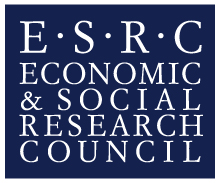The Educational Potential of Hip Hop and Grime

How does world-class research interact with hip-hop and society? What can youth workers and support services learn from hip-hop studies? The ESRC IAA-funded Performing Hip Hop Englishness Festival invited rappers and grime artists to Cambridge to address these questions.
The festival took place on the final day of the International Hip Hop Studies Conference held at the University of Cambridge. The festival offered an open and interactive forum within which researchers, academics, hip hop artists and youth workers could interact. Three young rappers, one singer, three youth workers and a youth services manager from Docklands Youth Centre in St. Paul’s, Bristol, were invited to the festival, which was also attended by the Head of English at School 21, and teachers from Rushey Mead School in Leicester and Kingsbury School in London. The three young artists participated in an hour-and-a-half workshop on getting established in the music industry, which was run by leading grime broadcaster, JJ. This was followed by a workshop on stage performance techniques run by TY, a leading UK rapper, and a rap “battle” competition at St John’s College hosted by professional DJs, in which the young people from Dockland’s Youth Centre performed and competed alongside professional and amateur rappers.
The Twitter tag #grimeycambridge received many references during the day, including photos of the plenary and the performances.
Many scholars of hip-hip studies argue for the empowering effect it can have upon young people. Whilst some hip-hop lyrics express attitudes that could be aligned with misogyny, violence, and crime, the genre also contains themes of self-reliance, resilience and self-esteem. References to escaping poverty through hard work and talent can inspire social mobility, and critical thinking may be encouraged through exposure to certain literary devices within the lyrics, such as metaphor, imagery, irony, tone, theme, motif and plot.
“We basically do hip-hop studies, because trying to instilling ethics into young people is hip-hop.”
The festival allowed youth workers to see how the research being undertaken within academia could be relevant to their professional practice and how it could have a lasting influence on the young people they work with. As one youth support professional said, “It was an eye opener for me, because I felt that the culture of hip-hop education is a lot bigger than I thought it was. There was a lot of strong material, strong models, and strong ethos around using hip-hop to educate…. I hope that this continues in the future. There is a big body of work that could come from this and that’s something that we’d want to be involved with.”
‘It felt like we started something that day, by just having a debate. We almost started like a movement…It felt like something started from there.”
The design of the Festival, using workshops and a rap battle ‘cipher’, facilitated important forms of interaction and engagement for the young people who attended. “Having artists from the grime and UK hip-hop scenes made the event more relevant to the young people.”
Most importantly, the event helped to break down barriers between the University and youth services. As one of the youth workers explained: “The link between us [higher education and youth work] isn’t as vast as we thought. … The fact that Cambridge are looking at hip-hop as a way of educating and bringing people together, that alone puts us on the same page in a lot of ways and there’s no reason that that can’t continue and grow even bigger. A lot of barriers are broken in that respect.”
| ESRC IAA Impact Fund Project: | Performing Hip-Hop Englishness Festival |
| Project Investigator: | Dr Richard Bramwell (Institute of Criminology) |
| Partner Organisations: | Youth Community Centres |
| Project duration: | June 2016 |
This project was funded by ESRC Impact Acceleration Account 2014-2019 (ES/M500409/1)

